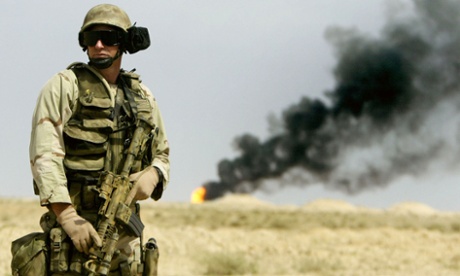Fossil fuels and peace don’t mix
First published in the Guardian on June 4th, 2014.
Why doesn’t anyone do anything about the situation in Ukraine?
One reason is that Russia supplies one third of the European Union’s oil and gas. The EU, in turn, represents 20% of the world’s economy, and any precipitous rise in the energy prices they pay is a very scary proposition.
In other words, oil and gas are both the fueling impetus for Vladimir Putin’s current forays and the reason for subsequent global inaction.
Russia is hardly alone. On the other side of Asia, China is risking a hot war with Vietnam in order to plant an oil rig in disputed waters. No nations have come to Vietnam’s side. Meanwhile, Russia and China have just signed a $400bn deal for 30 years of natural gas supply and demand. This alliance creates an economic and defensive bloc that could limit the rest of the world’s move towards safe energy development.
China’s $400bn bet on natural gas added to its central role as the world’s top manufacturer and primary emerging market, create a conflict. If the world chooses to place a price on carbon, which is desperately needed, China and Russia now have an alliance against other economies that might want to incentivize safer renewable energies.
Some of the world’s great oil reserves are on land governed by repressive regimes and dictators, including the House of Saud, Vladimir Putin, Sudanese warlords and Mahmoud Ahmadinejad. The pipelines and ports to transport this oil go through lands of every geo-political leaning, from Canada, whose tar sands aim to serve the US, to Kazakhstan, whose pipeline to China is now being expanded.
Oil and gas wars (hot, cold and economic) will only intensify as at

